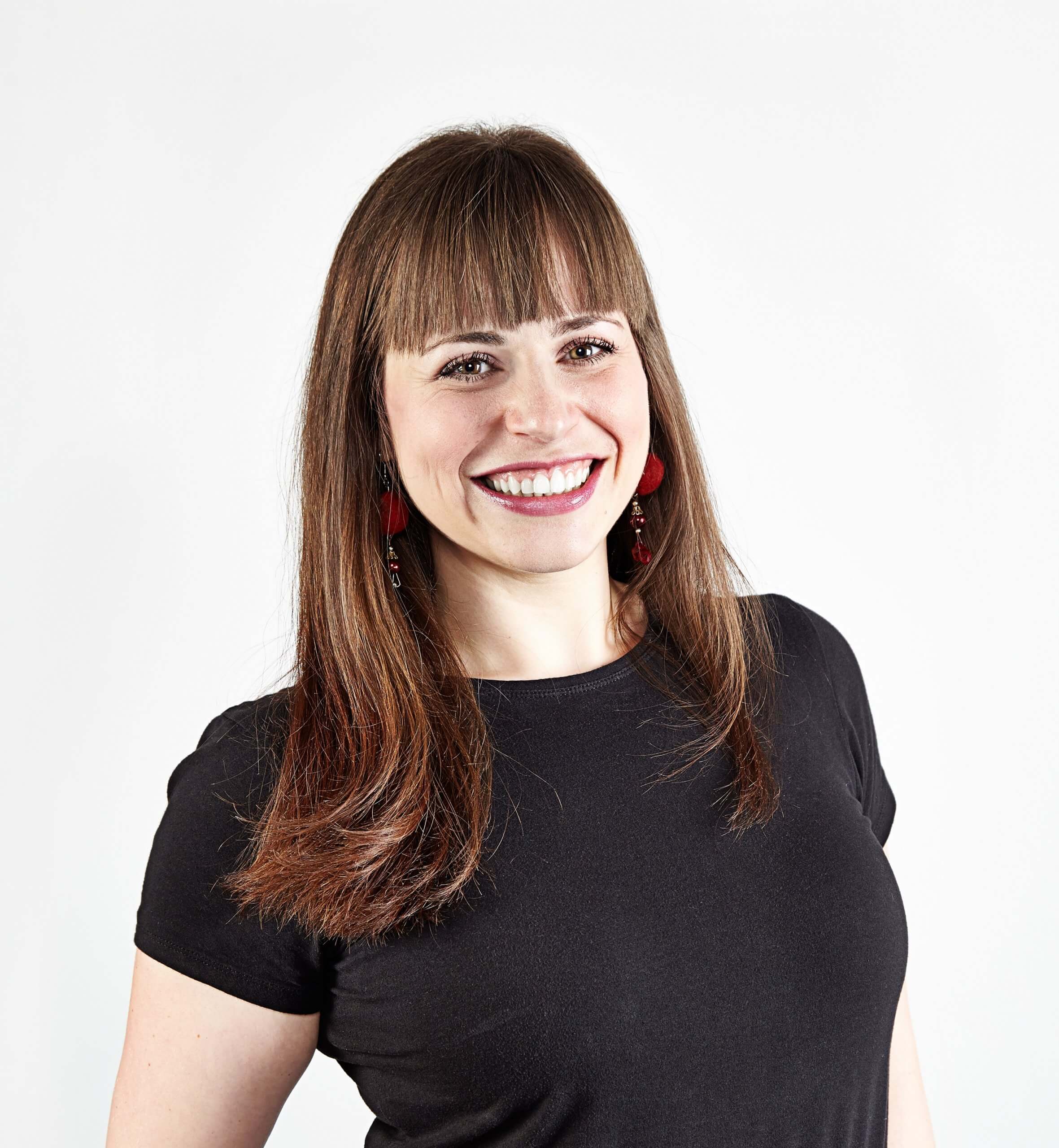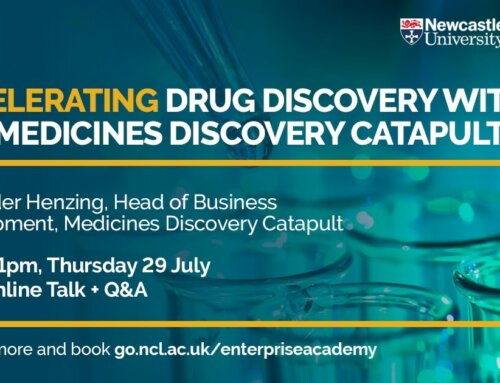As we gear up to International Women’s Day (8 March) and British Science Week (6 – 13 March) we chat to some of our inspirational tenants and collaborators about being a woman working in Science, Technology, Engineering or Maths. Today, we’re in conversation with Dr Andria Pelava, a development scientist with Biosphere tenant, Iksuda Therapeutics. Iksuda is developing next-generation Antibody Drug Conjugates (ADCs) for the treatment of difficult to treat, solid cancers.
Firstly, can you tell us a little bit about what you do?
I am a Development Scientist at Iksuda Therapeutics, where we focus on the development of targeted cancer treatments, called Antibody-Drug Conjugates, for difficult-to-treat cancers. These substances contain an antibody, which recognizes and binds the cancer cells in the body, and a cytotoxic drug, which kills the cancer. Due to their properties, Antibody-Drug Conjugates allow for the release of the cytotoxic drug in the cancer cells alone, without affecting healthy cells, resulting in decreased side effects and increased therapeutic efficacy.
What does your role involve on a day to day basis?
My role involves mainly laboratory work, where I use cell biology and biochemistry techniques to make and test Antibody-Drug Conjugates in the lab. I troubleshoot technical difficulties should they arise, and I keep up-to-date with relevant literature and scientific advances.
Why STEM?
I was always curious about the human body and I enjoyed science throughout school. Biology was the topic I enjoyed most and I was naturally good at. When I completed a short work placement during school at a genetics institute, I realised how much science can help improve people’s lives through advanced diagnostics and finding cures. It was my love for Biology, natural curiosity and the desire to help people through science has led me to pursue a career in Biosciences.
A recent study by Teach First found that more than half the population couldn’t name a female scientist. Can you tell us about someone who inspired you in STEM – famous or otherwise – and why?
My main inspiration for my career in STEM was, in fact, my mom – a strong woman who pursued her passion in having a successful career and a loving family. She always loved science and, having such a powerful role model, I then started looking more into other women scientists, only to discover a great amount of them: Marie Curie, Rosalind Franklin, Rita Levi-Montalcini, etc.
What would you say to inspire a young woman considering a career in STEM? Any tips?
My biggest tip for a young woman considering a career in STEM is to not be afraid to follow her passion and dreams. Pursuing a career in a subject that seems to be male-dominated can be a scary thought. However, more and more women are involved in STEM subjects nowadays and the field is positively changing: less judgement, more opportunities, more support. It is important for young women to believe in their selves, strengths and abilities, because they CAN do whatever they choose to.
And finally, why is Newcastle and the wider region such a great place to work in STEM?
The level of scientific research in Newcastle is one of the best in the country, with Newcastle University, Centre for Life and Newcastle Helix to be in the centre of it. STEM is rapidly growing in the North East and there is an increasing amount of opportunities becoming available. I believe that all of these in combination with the great quality of life that the area offers, makes the North East an ideal place to work.
The Biosphere is hosting a celebratory #WomenInSTEM event on Friday 6th March to mark International Women’s Day. Click here for more information and to sign up.



